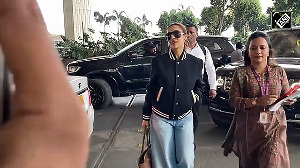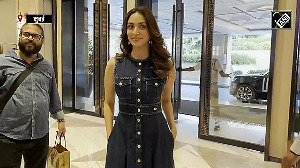The timing of the Australian Open came under fire from leading players on Wednesday after more big drawcards pulled out of the first Grand Slam of the year.
The 2005 champion Marat Safin joined the mounting absentee list when he announced he was not defending his title, just a day after French Open champion Rafael Nadal told organisers he would not be playing in Melbourne.
Safin succumbed to the long-term knee injury that has troubled him since Wimbledon while Nadal withdrew because of a foot problem that has plagued him since the end of last year.
"I don't think it takes a brain surgeon to figure out why a lot of people are getting hurt," American Andy Roddick told reporters in Melbourne.
"I believe it's in the best interests of the game for them to come up with an off-season to give us time to recover. You can't play if your body won't allow you. A solution needs to be found."
Safin is the first men's champion not to defend his Australian Open title since Andre Agassi pulled out of the 2002 tournament with a wrist problem.
Agassi, a staunch supporter of the Australian Open when many other top players failed to make the trip Down Under, has also withdrawn from this year's event because of an ankle injury.
Greg Rusedski and Alicia Molik have also pulled out of the Open, starting in Melbourne next week, while several other top players are in doubt.
Safin's sister, Dinara Safina, former world number one Carlos Moya, Sweden's 2002 Australian Open champion Thomas Johansson and Slovakia's Daniela Hantuchova all retired from this week's Sydney International because of injuries.
It is not unusual for top players to miss the Australian Open through injuries suffered the previous season but the latest drop-outs have renewed calls to move the tournament to a later date or finish the season earlier.
Australia's Lleyton Hewitt, regarded as one of the fittest men on the professional circuit, agreed with Roddick that the players need a break.
"These are the kind of things that the players, and especially the top players, have been asking been asking for and want a look at for a long time now," Hewitt told a news conference in Sydney. "But nothing still seems to be happening."
BURNOUT FEARS
Fears about player burnout have been around for years but reached new levels last season when the field for the lucrative Masters Cup in November was decimated by injury as Agassi, Roddick, Nadal, Safin and Hewitt all pulled out.
The Davis Cup final, usually held in the first week of December, has also contributed to the problem by reducing the break before the Australian summer season starts in January.
"It's a lot tougher on the top players," Hewitt said. "They're normally the ones playing in the Davis Cup final, two and a half weeks after the Masters Cup.
"You've somehow got to have a couple of weeks off there but there's no way your body can bounce back.
The Australian Open, traditionally held in the last two weeks of January, has often been the big loser.
In the days before easy jet travel, the top players in Europe and the U.S. preferred to stay at home rather than undertake the lengthy journey.
Even now, the top players are regularly missing and the problem is made worse by Australia's scorching summer heat where on-court temperatures often exceed 45 degrees Celcius.
Former world number one Martina Navratilova famously described the Australian Open as dangerous, writing in a newspaper column:
"It could take someone dying before things will change but I firmly believe the Australian Open should be put back a month until at least February."








 © 2025 Rediff.com -
© 2025 Rediff.com -